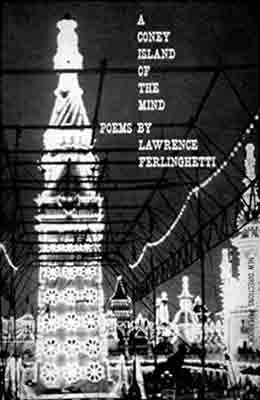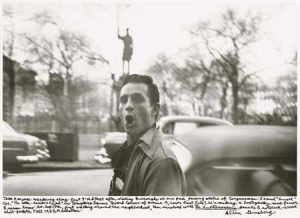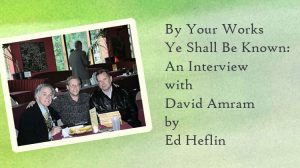 I first found Lawrence Ferlinghetti’s A Coney Island of the Mind while an undergraduate, finding the wry attacks on the established order refreshing and invigorating. Ferlinghetti protests and rages against the madness of the nuclear age, against the misuse of religion and politics to enslave humanity, and against the colossal indifference that allows all this to happen. He pronounces: “Christ climbed down/from His bare Tree/this year/and ran away to where/there were no rootless Christmas trees/hung with candycanes and breakable stars.” Ferlinghetti aches for a return to the sources, while at the same time deconstructing those sources in a humorous and graceful fashion.
I first found Lawrence Ferlinghetti’s A Coney Island of the Mind while an undergraduate, finding the wry attacks on the established order refreshing and invigorating. Ferlinghetti protests and rages against the madness of the nuclear age, against the misuse of religion and politics to enslave humanity, and against the colossal indifference that allows all this to happen. He pronounces: “Christ climbed down/from His bare Tree/this year/and ran away to where/there were no rootless Christmas trees/hung with candycanes and breakable stars.” Ferlinghetti aches for a return to the sources, while at the same time deconstructing those sources in a humorous and graceful fashion.
In the ensuing years, I have found Ferlinghetti again and again, each time listening more closely to his mischievous bebop. As an English teacher I found dozens upon dozens of historical and literary allusions, both obvious and hidden. Ferlinghetti takes us down “Dante’s final/fire escape,” spoofing and lionizing, playing with our expectations, taking on Yeats, Eliot, Joyce, Hemingway, Keats, the Bible… “I have seen…the Beautiful Dame Without Mercy picking her nose in Chumley’s.” References like these are interpretations, re-imaginings, and damnations of our received myths. The title itself comes from Henry Miller’s essay “Into the Night Life,” and is, as Ferlinghetti understates in his introductory note, “taken out of context.”
But once again Ferlinghetti goes beyond the deconstruction of literary antecedents. At first lines like “Let us arise and go now/to the Isle of Manisfree” seem like parody or ridicule. But as layers upon layers of literature are laid down, the names and phrases disappear into the music of the poetry. A strange harmony takes shape between the jesting of jazz and the classical forms it plays upon. “Manisfree” is more than a parody of Yeats’ actual place name “Innisfree;” it demonstrates a new sensibility within the form of earlier work.
This rich collection seems just as fresh as it did at its publication in 1958, and that should be no surprise. In “Autobiography” Ferlinghetti writes: “For I am a still of poetry. I am a bank of song.” By arranging new, syncopated rhythms and sounds around the language of the past, A Coney Island of the Mind takes us to a place both familiar and startling, liquefying and electrifying the language of life.




